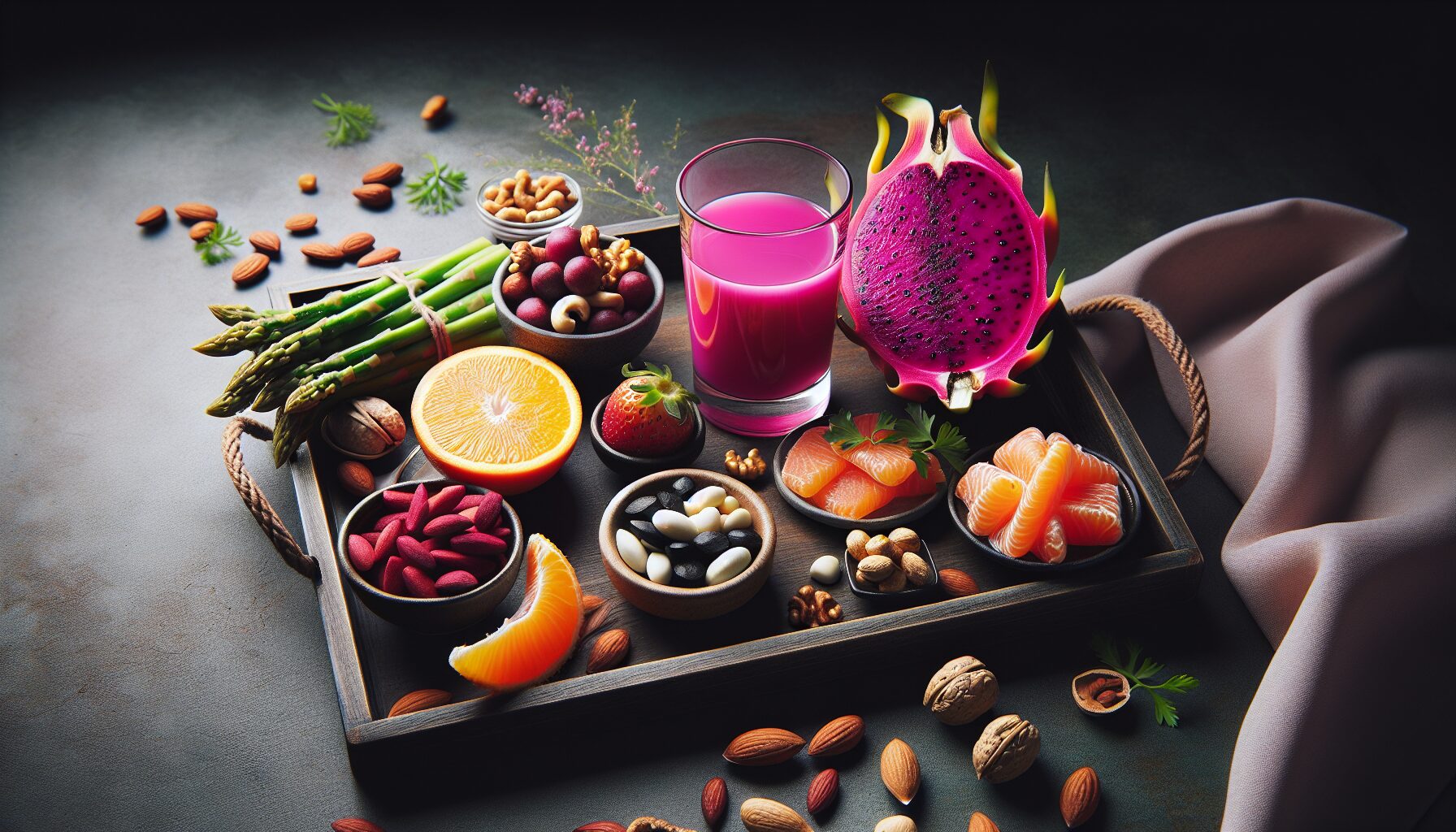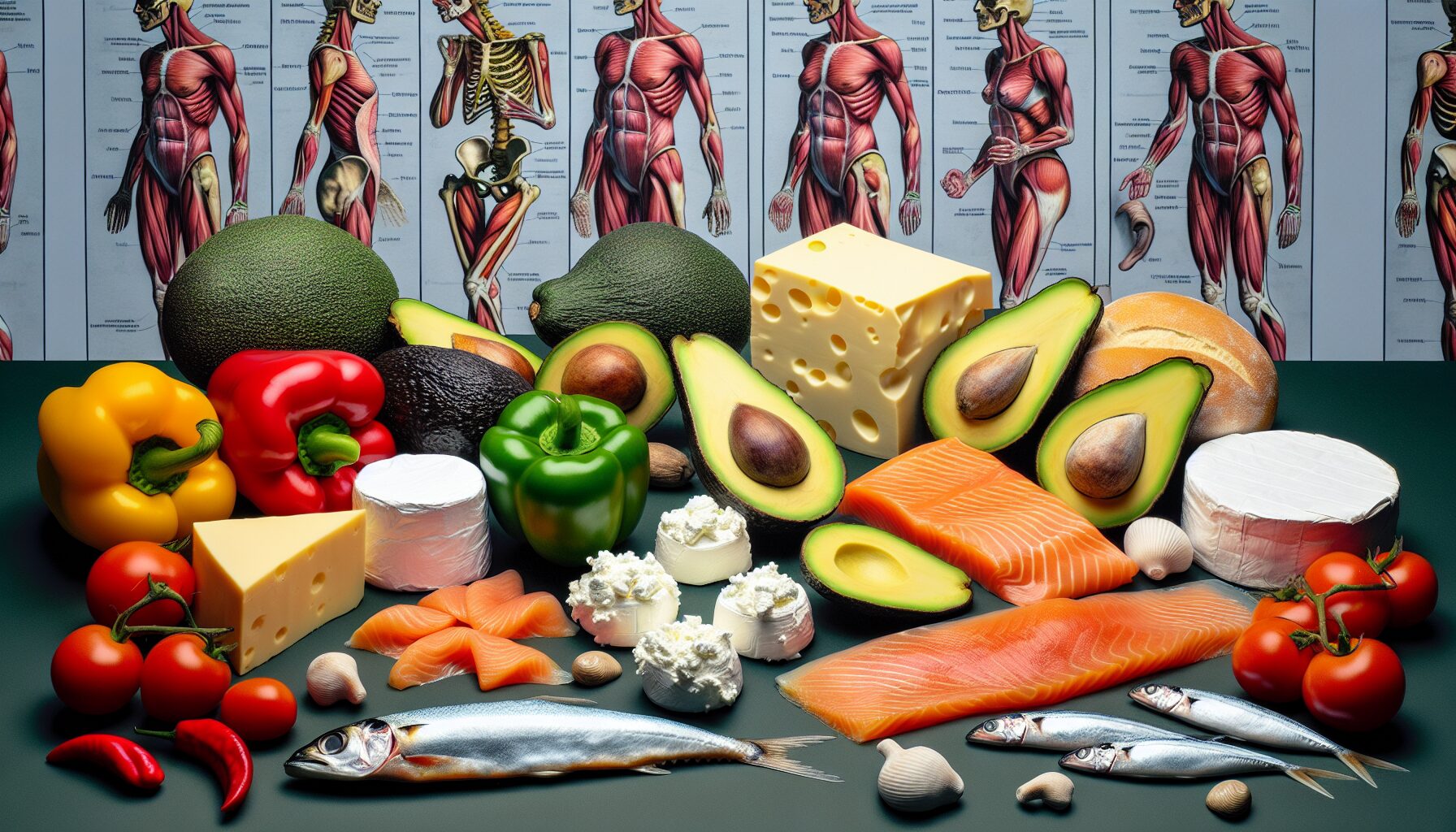
Best Foods To Build Bone Density: 9 Bone Building Foods
Finding the best foods to support with your body’s capabilities to build bone density is really easy. Bone formation and bone density is so important for our daily functioning. It became of high importance to animals when moving from the oceans to land. This means animals became quite well adapted to sourcing and absorbing nutrients for the formation of bones over time.
However, some can experience difficulties in maintaining optimal bone density or bone mass. This includes sufferers of osteoporosis, where bones are naturally brittle. For these individuals, finding the very best foods to build bone density is of the highest importance for maintaining optimal health. Certain heavy metal toxins can promote the loss of bone density and osteoporosis. It is very important to note that your bone structure can change.
While supplements can offer a good means of supporting your nutrient intake, the most bioavailable nutrient sources tend to come from foods. This is especially true for bone specific nutrients and your bones also need a range of minerals to support themselves.
Optimal bone health requires a variety of nutrients such as phosphorus, calcium, magnesium and boron. While there are also nutrients that support major processes of supporting healthy metabolism in the bones including zinc, vitamin C and the B vitamins. We will discuss how some of these nutrients support bone health and then introduce some of the best foods to build bone density that are rich in these nutrients.

Key Nutrients For Building Bone Density
Whether you are looking to promote higher bone density for working out at the gym or to support your everyday wellbeing, obtaining the right nutrients for your bones is important for this. Lifting weights and the process of movement requires the formation of bone. It also requires the maintenance of optimal bone density. Bone formation requires calcium, amino acids and phosphorus. These nutrients all play key structural roles within bones.
Phosphorus
This is probably one of the most important minerals on the planet. Phosphorus is so key for so many processes throughout the body and is considered to be essential for life. It forms the backbone of DNA. Phosphorus binds with calcium in bone tissue. The bonding of mineralized calcium and phosphorus is required to form strong bones and to encourage improved bone density. It is an important rate limiting nutrient and is heavily involved in metabolic processes. This is why most dietary sources of phosphorus are found in protein rich foods. This includes cheese, fish, poultry and meats.
Calcium
Calcium is one of the most important nutrients for maintaining optimal bone mass and building bone density. It is of key structural importance and provides bone with hardness, alongside phosphorus. About 80% of bone mineral content is calcium and phosphorus. Many people are consuming a diet too high in phosphorus and low in calcium. This dynamic is thought to be promoting bone loss in the body. Without adequate calcium in the body, you will start to lose bone mass instead of laying down bone tissue.
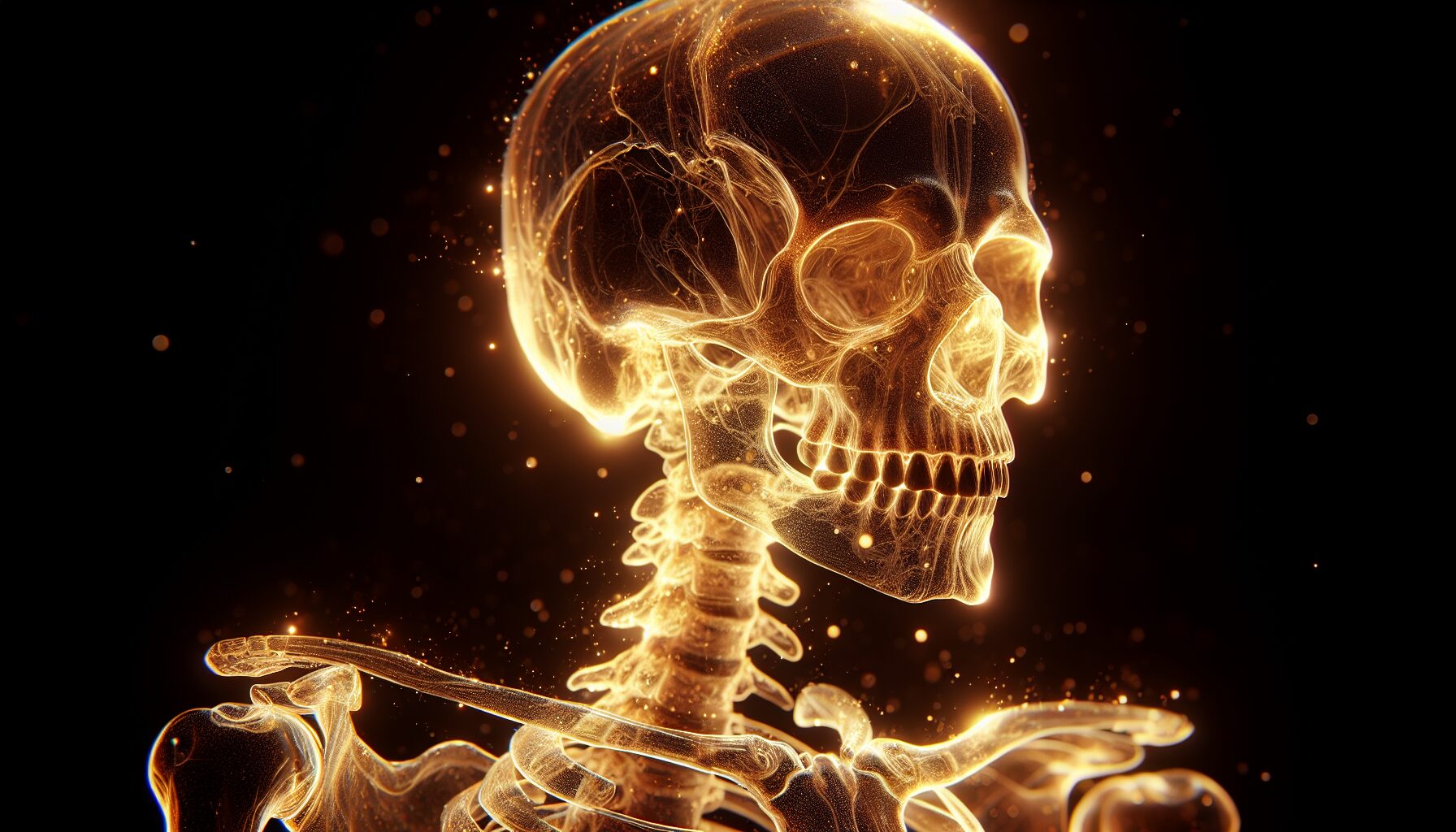
Vitamin D
Vitamin D is also amongst the most important nutrients for building bone mass and density. It can help to drive calcium into the cells of the intestines for absorption. Many studies have shown how vitamin D improves calcium status within the body. Vitamin D deficiency is prevalent in older adults too, emphasising an importance to consider improving your vitamin D levels. Vitamin D is fat soluble, you must consume healthy fats to optimise your levels of vitamin D in the body. Deficiencies in vitamin D and calcium increase the levels of parathyroid hormone in the body. This can promote bone loss and risk of fractures.
Boron And Magnesium
Boron may play a role in maintaining optimal bone mass through promoting healthy bone metabolism. Many studies have reported that this trace mineral could have potential benefits on maintaining bone mass, especially when supplemented. It is thought to play an important role alongside other minerals such as magnesium, rather than being a key rate limiting bone nutrient. This is because is was seen to enhance strength and alter mineral composition of bone. It may have an osteogenic effect influencing bone growth and maintenance. Boron is naturally found in many fruits in high quantities and also certain vegetables. This includes red beans, pears and watermelons.
The balance of magnesium and calcium in the blood is quite important for various bodily processes including for maintaining bone density. Imbalances can lead to hypocalcaemia and changes in parathyroid hormone levels, where bone then becomes reabsorbed. Higher intakes of magnesium are associated with increases in bone mass and density. Conversely, lower levels of magnesium are related to an increased risk of osteoporosis. Deficiency seems to aggravate bone reabsorption, which then lowers bone density.
Bone Building Amino Acids
Because of the role the branched chain amino acids play in triggering cellular growth through protein synthesis, studies with BCAAs have been shown to influence bone mass and density. The three branched chain amino acids leucine, isoleucine and valine have all been shown to influence bone mass levels. Therefore, improving the amounts of BCAAs you consume may also improve your bone density.
Maintaining a healthy intake of amino acids and protein is therefore clearly important for your bone health. Studies with collagen amino acids, or hydrolysed proteins, also support this. Collagen is an important part of connective tissue and improved status of collagen in the body seems to improve bone matrix strength. The inner bone matrix, or contents, is rich in this protein. Collagen is the most abundant protein in mammals, forming one third of the total body weight of protein.
Zinc
Zinc is important companion for many processes in the body. It is very important for human health. Zinc is heavily implicated in bone health, being a component of bone tissue. It is also involved in the synthesis of collagen and bone turnover. Bone protein production is increased with improved zinc levels. Zinc can improve the rate of bone tissue formation relative to bone turnover. It is also an important antioxidant and reduces oxidative stress throughout the body. All of these factors contribute to the formation of bone density and bone building.
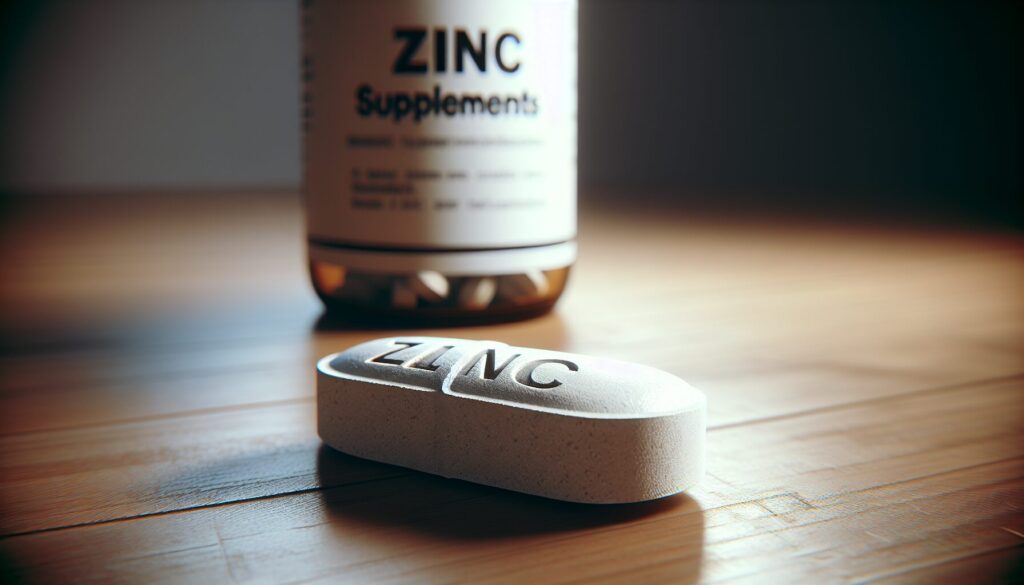
Vitamin C
Vitamin C is another antioxidant involved in bone health. Just as with zinc, vitamin C is needed all over the body. Deficiencies in vitamin C can cause issues with wound healing and bone pain. Various studies show that vitamin C might have a key role in maintaining bone mass. Studies show that individuals with higher vitamin C levels also had higher levels of bone mineral density. This may be mediated through improved collagen synthesis, which forms a key part of bone matrix. As with zinc, vitamin C influences the promotion of bone formation. Deficiencies in vitamin C greatly compromise bone health.
This makes it very important to promote healthy antioxidant levels in the body, to conserve levels of key bone building nutrients such as vitamin C and zinc. It also emphasizes the need to maintain optimal levels of vitamin C in the body for bone building, through optimal nutritional intake.
B Vitamins
The B vitamins are also implicated in maintaining optimal bone health. Some studies have found that deficiencies in B vitamins lead to elevated homocysteine levels in the body. This then can result in bone loss, reductions in bone strength and higher fracture risks. Deficiencies of vitamins B12 and folic acid seem to have a big effect on homocysteine levels. They are thought to contribute to the loss of bone density when the body is deficient. Elevated homocysteine, caused by B vitamin deficiencies, can also cause disturbances to collagen protein formation. This emphasizes the importance of maintaining good levels of the B vitamins for optimal bone formation.
9 Foods That Build Bone Density
Considering these key nutrients for improving and maintaining bone density, lets cover some key bone density improving foods. These are just some examples of the variety of bone density supporting foods out there.
Sardines
Sardines with bones are one of the best foods you can eat to encourage your bone density. This tiny fish is rich in some of the key minerals we have mentioned.
You can include sardines as part of so many healthy meals and make those as complex as you like. Personally, we would recommend trying these lightly grilled with cheese and risotto stuffed peppers. If you feel fancy you can include a side dish of salad. Be careful with the oxalate contents of some leafy greens though. Oxalates, like those found in spinach, can bind to and prevent the absorption of calcium. As we have mentioned, calcium levels are important for avoiding bone resorption.
Sardines are rich in phosphorus, calcium and magnesium. In 100 grams of sardines there is 490mg of phosphorus, 382mg of calcium and 39mg of magnesium. 100 grams of sardines also has 4.8µg of vitamin D, with a source of healthy omega 3 fatty acids too, for optimal calcium absorption. They are also a source of good source of collagen and various amino acids, including BCAAs. 100 grams of sardines contains 2 grams of leucine, 1.13 grams of isoleucine and 1.27 grams of valine. All of these nutrients can contribute to optimal bone density.

Smoked Salmon
Smoked salmon is also rich in nutrients than can help to support optimal bone health such as phosphorus and vitamin D. In 100 grams of smoked salmon there is 164mg of phosphorus. Phosphorus is so essential to optimal bone health. In 100 grams of smoked salmon there is 17.1µg of vitamin D or 684IU of vitamin D. Vitamin D supports optimal calcium intake in the intestines, which in turn, will assist with maintaining optimal bone density and mineral content. Smoked salmon is also rich in fatty acids which will help with absorbing vitamin D. You could even add a little lemon for some added vitamin C. Smoked salmon is another food that really adds a good claim to being one of the best foods to help build optimal bone density.
Kefir
Kefir is an increasingly popular fermented yoghurt form and is a really good bone density building food. In 100 grams of kefir there is 100mg of phosphorus, 124 mg of calcium and decent quantities of the B vitamins. Seeing as kefir is fermented, vitamin B12 levels are elevated compared to standard yoghurts. This is because milk digesting bacteria are able to produce more B12 than they would with a standard yoghurt. Kefir can be eaten or drank, depending on how it is produced. 100 grams of kefir contains 0.3µg of B12, the equivalent of 13% of your RDA. 100 grams of kefir can also provide 0.45mg of zinc. Kefir can also offer a rich source of many different amino acids. These nutrients can all help to support optimal bone density.

Cheeses
Fresh cheeses are a really good source of many nutrients that are essential for maintaining optimal bone density. Of all the foods we would consider to be able to contribute to maintaining healthy bone, they might be one of the most nutrient dense. For example, in 100 grams of feta cheese there is 2.35mg of zinc, 371mg of calcium, 328mg of phosphorus and 17.7mg of magnesium. 100 grams of feta cheese also contains about 20 grams of protein. 100 grams of mozzarella contains 1.65µg of vitamin B12. Together all of these nutrients can support optimal bone density. The only consideration with cheese is moderation, there is a high fat content within cheese.
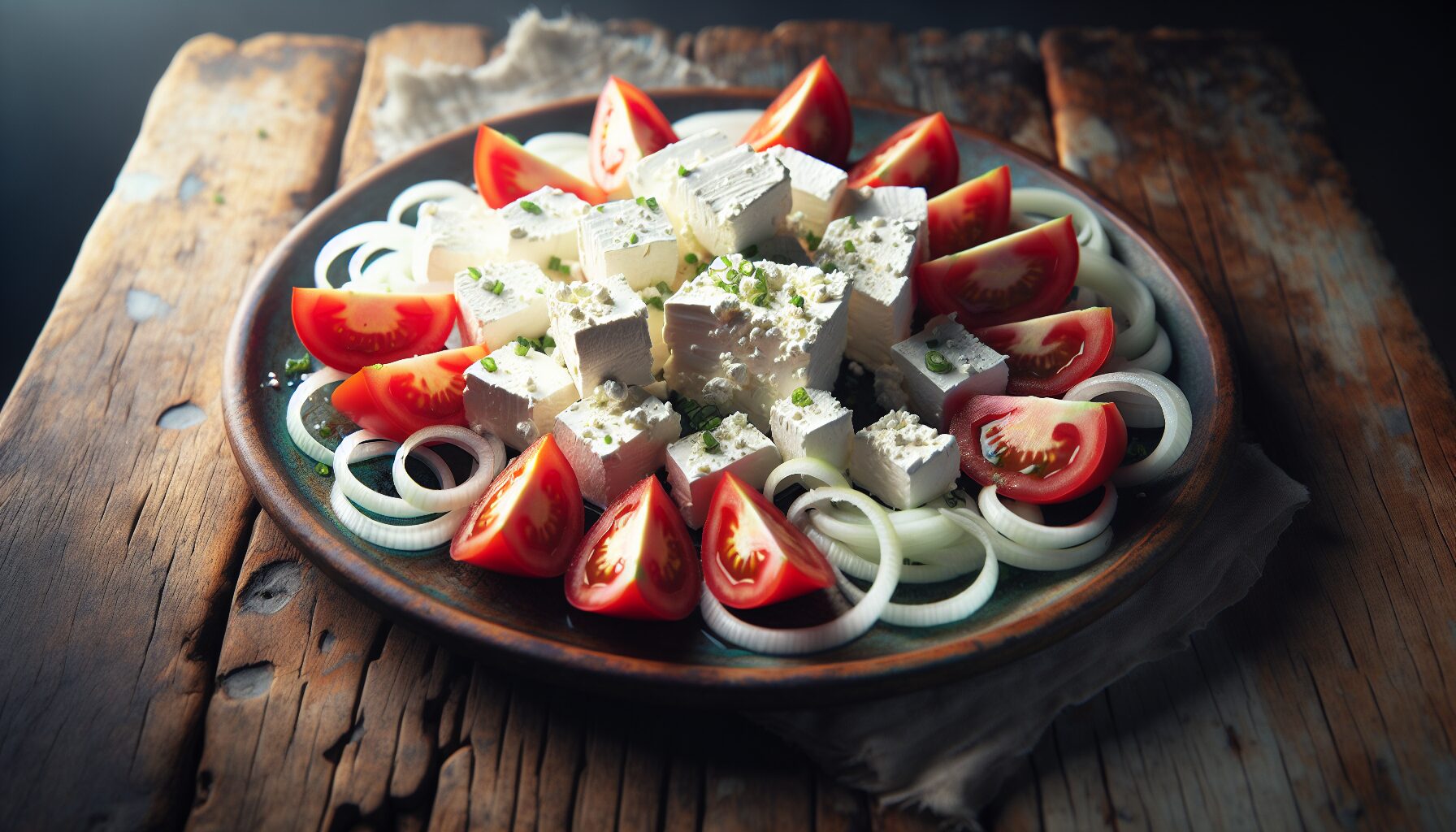
Crab
Crab is another bone building food to consider. In 100 grams of crab meat there is an impressive 3.48mg of zinc. Optimal zinc levels in the body can support healthy bone density and crab can provide a highly bioavailable source of zinc. In addition, crab provides 278mg of phosphorus, 43.1mg of magnesium and 111mg of calcium per 100 grams of crab. There is also a fairly high level of vitamin B12 in crab meats. Crab contains 3.12µg of vitamin B12 per 100 grams. Considering that crab also contains high levels of protein, 18.6 grams per 100 grams, we would consider this to be one of the more ideal bone density building foods.
Bell Peppers
The vitamin C content in red peppers is very substantial compared to most fruits and vegetables. Red bell peppers contain 142mg of vitamin C per 100 grams. This is a great side to a main or inclusion into a ragu. As we have mentioned, optimal vitamin C levels are important to maintaining good levels of bone density. While not packed in calcium or phosphorus, as with the other foods we have mentioned, red peppers contain decent amounts of B vitamins which are also important for optimal bone density.

Mushrooms
Mushrooms offer a rich a rich source of all the B vitamins and are also a substantial source of vitamin D. They can also provide a source of phosphorus, with 100 grams of button mushrooms offering 93mg of phosphorus. 100 grams of portabella mushrooms provide 0.39 grams of zinc. Mushrooms could certainly support a diet of bone density building foods.

Egg
Eggs nutrient dense and could also support optimal bone health. There is 2.2µg of vitamin D in 100 grams of hard boiled eggs, this is about 11% of your RDA intake. Vitamin D supports healthy calcium absorption in the intestines. They also provide about 1.1mg of zinc per 100 grams, which is about 10% of your RDA. Eggs also contain 172mg of phosphorus per 100 grams. These nutrients clearly have the potential to support bone density, steaking its claim as one of the best foods for bones.
Avocado
Avocado is rich in magnesium, an essential nutrient that could support higher bone density. There is 32.8mg of magnesium in 100 grams of avocado. There are also good levels of zinc in avocados, they offer 0.46mg in 100 grams of avocados. While avocado also contains 129µg of folate a key B vitamin. Avocado is also thought to be rich in boron, which could also support optimal mineralization of bone tissue.
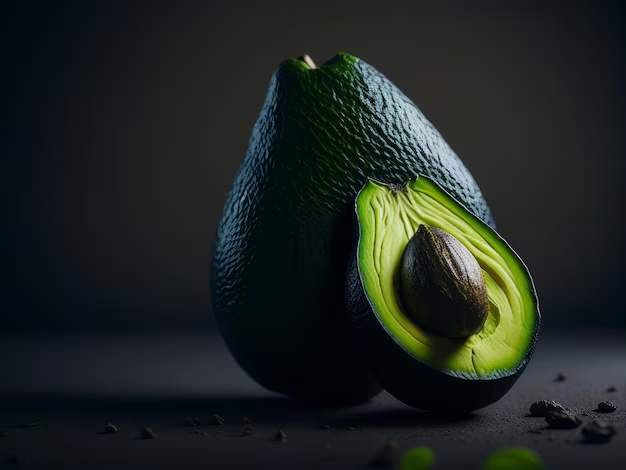
Summary
Whether you are looking to promote higher bone density for working out at the gym or to support your everyday wellbeing, obtaining the right nutrients for your bones is important.
Unknown to many, your skeleton and bone structure change on a daily basis. Your bone density is so important to maintaining optimal daily functioning. For individuals with osteoporosis in particular, finding the very best foods to build bone density is of the highest importance for maintaining optimal health.
Foods rich in nutrients such as phosphorus, calcium, magnesium and boron are essential to supporting optimal bone density. Phosphorus and calcium in particular form a massive percentage of bone. They support overall bone structure and bone density. Food sources of zinc, vitamin C and the B vitamins can also contribute to improving bone density. Vitamin C can enhance the production of collagen in the bone matrix. This is an important factor in maintaining bone density.
Here we have covered some of the best foods for maintaining optimal bone density. Some foods that we would consider as having the highest potential in a bone density diet are sardines, crab and bell peppers. Sardines are really rich in phosphorus, calcium and vitamin D. They also contain vitamin D. These nutrients all support healthy bones. Crab and bell peppers are rich in zinc and vitamin C, these antioxidant nutrients can support bone health too. Crab also contains a substantial amount of vitamin B12.
These are just some foods that could support bone health, there are so many other foods you can eat to encourage bone mass formation.
For more interesting articles, find the main articles page below.



